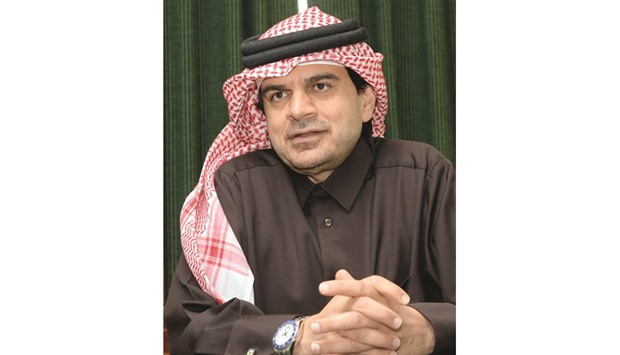A joint venture Islamic bank promoted by Qatar’s QIIB and Morocco’s CIH Bank will add significant value to the kingdom’s economy, QIIB chief executive officer Abdulbasit Ahmad al-Shaibei has said.
“We are not going to take business away from conventional banks in Morocco. Islamic banking will bring back those money, which remains isolated. We will bring the money back to the North African kingdom’s economy,” al-Shaibei said in an interview with Gulf Times in Doha.
The joint venture in Morocco, which will be among those pioneering Shariah-compliant Islamic banking in the kingdom, is expected to formally start operations soon.
Recently, a high-level official committee in Morocco approved the application submitted for the JV bank by QIIB and CIH, al-Shaibei disclosed.
“They have reviewed our application and approved five applications for establishing an Islamic bank in Morocco. We are one of them,” al-Shaibei said. “Now since the committee has approved our application, we are waiting for the Morocco’s central bank to grant us the official letter and issue the licence to open the Islamic bank.”
He said the first AGM would follow the issuance of the formal licence.
Al-Shaibei said he expected Morocco to be a “launch pad” for QIIB and its joint venture bank in the kingdom.
“We believe Morocco will be our gateway to North Africa. “There is a huge market waiting to be tapped in North Africa, which is in need of Shariah-based, value-driven banking. In Morocco, people are looking for Islamic banking. Morocco can provide us a gateway to this huge market and the kingdom has good relationship with the countries in North Africa,” he said.
Al-Shaibei said with the entry of Islamic banks, more channels would be opened in Morocco.
“There will be new channels for government sukuk…even semi-government projects will be able to tap this new market in non-conventional banking. A lot of people are now outside the system because they can’t do business with conventional banks for religious reasons. For them, they have a clear alternative now. This will add a lot of value to the Moroccan economy”.
Al-Shaibei emphasised that the new JV bank in Morocco was not in competition with conventional banks. “Purely, we have a complementary role to play,” he said.
Asked why Morocco was chosen to establish the JV bank, the QIIB chief executive officer said, “Morocco enjoys economic and political stability. Their currency (Moroccan dirham) has been stable for quite a while. Moroccan authorities are waiting for the emergence of Islamic banking in the kingdom.”
On its JV partner, al-Shaibei said, “They (CIH) have a lot of experience and expertise in the Moroccan market. They have been in the market for many years. They know the market very well. We can certainly bank on their capabilities. We can help them choose the right system or design and implement different types of products. We can help them market the bank and tap potential customers. So, we will complement each other...we are a natural fit”.
Established in 1920, CIH Bank has a long-standing banking tradition in Morocco.
Since Islamic banking is new to Morocco, al-Shaibei said, “Creating awareness about the value-based Shariah-compliant banking we do is a task in itself. But we will do it by getting actively engaged with the community. We will also build an Islamic banking culture within our bank. That’s very important.”
For example, he said, “We don’t use the term ‘loan’ or ‘interest’ in Islamic banking. So, our team has to be careful even in the use of certain terminologies.”
Al-Shaibei said a roadmap for the new bank is ready. “We have done our homework with our Moroccan partners. We know where we want to go from here. We have a clear road map in terms of business model, branch network, and head office …everything very well identified. The IT systems are also ready,” al-Shaibei added. Page 3

Al-Shaibei: Looking at Morocco as the gateway to North Africa.

